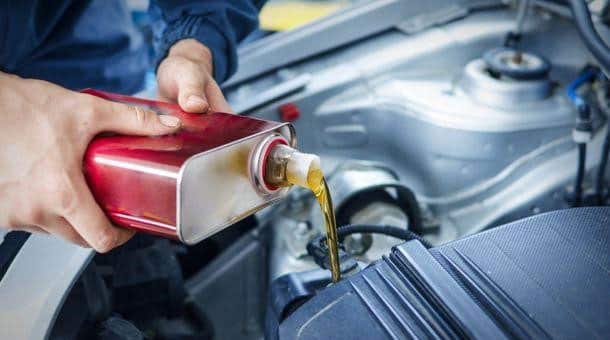The engine in your car is a complex and intricate piece of machinery. However, one thing you know about your vehicle’s engine is that it requires fresh oil to function correctly. Lets look at car oil change tips.
Inadvertently changing your oil regularly could cause the degradation of your engine and, eventually, a seizure or the engine shut down.
When that happens, you’re facing potentially frightening costs for repairing or replacing your engine. It’s much simpler to stay ahead of the game using preventative measures, such as regular oil adjustments.
SORT OF OIL
What kind of oil is recommended, and how often should it be used? It’s based on the type of oil you are using, the kind of vehicle you use, and the frequency you drive. The owner’s manual can assist you at this point.
Three months every three months, or 3,500 miles, per the old phrase. Traveling a specific amount of miles is more important than driving for a particular duration. You could embark on the road and cover some thousand miles in just a couple of weeks, but it may take up to five months to cover the distance required.
Be aware of the odometer and how you’ve been driving your vehicle. Bad weather or carrying a lot of heavy objects behind your vehicle will affect the oil in your car. Changes in oil and fresh oil play various crucial roles in your vehicle’s engine.
Also Read:
Top 5 Best Synthetic Oil to Keep Your Engine Healthy!
9 Reasons Why a Car Oil Change Important
1. Longer Engine Life More Likely with Routine Oil Changes
It is essential to the health of the car. It protects and lubricates your engine, as well as its essential parts, from damage and wear. The issue is that oil becomes dirty. When you get your filter and oil changed under your manual for the owner, You will ensure that your engine is well-maintained and safe, in addition to saving money.
Time and anxiety. A regular oil replacement will be an investment which will ensure that you’ll be driving around in your car for many years in the future.
2. Changing Your Oil Protects Other Engine Parts
What exactly does oil do in my automobile? Within your engine are numerous key components that help it run, including the crankshaft and the rods that connect it.
These rods are responsible for controlling the pistons inside your engine’s cylinders. Another component is the camshaft, which assists in closing and opening the exhaust valves of your vehicle. Ensuring that you have fresh oil in your vehicle’s engine is vital to keep the condition of these parts running and functioning correctly.
3. Improve Your Gas Mileage by changing your oil on Time
Make sure my oil is changed on Time, and I’ll get more gas mileage. How do I accomplish that? Finding a car that is efficient on gas is essential for all of us. Miles per gallon are influenced by various elements, such as the terrain, environment and personal driving habits.
Maintenance on your vehicle. If your vehicle is not maintained correctly, all that dust and grit that we discussed in the past will build up in your engine, creating friction. And friction isn’t a friend to your engine.
Friction is the main enemy of engine performance and optimal energy efficiency. Making sure your engine is always running with clear oil can help lessen friction, allowing your engine to operate more efficiently and resulting in the highest possible fuel efficiency.
4. Pass Your Vehicle Emissions Test & Protect The Environment
If you want to pass an emissions test, it’s about how much of these hydrocarbons, or particles, are sprayed into the air.
If you do not change your oil regularly, dirty oil accumulates these hydrocarbons within the crankcase. Then, they are burned in the process, which causes more to release into the air via the car’s exhaust.
Not just changing your oil at the right Time help you pass the obligatory emissions test, but you’ll also be polluting less.
5. Routine oil changes help to better engine performance.
As Time passes, old oil begins to break down because of exposure to temperatures. This results in the loss of its viscosity and its ability to lubricate the engine’s cylinder walls. Essentially, the dirtier the oil gets, the more difficult it is to get it to where it has to go.
The sludge starts to build in places that hinder fluid flow to the parts requiring fluid lubrication. Another reason oil is used can be to draw warmth away from the parts of your engine.
When they’re coated with sludge, the parts are hotter for longer. The engine ultimately will run slower, and its performance is diminished in terms of power and mileage.
6. Preventing Leaks
Leaks in oil are another problem that can occur if the oil remains for a long time and is unreviewed. If your oil level is low, it could be a sign of leaks.
Routine oil maintenance ensures that the problem is treated before they begin.
Better fuel economy Clean oil is an engine running more efficiently and with lower energy consumption. The investment in regular oil changes typically means saving cash in different areas.
7. Extended Car Life
Would you like your car to last for as long as feasible?
Frequent oil changes are essential if you want to prolong life and get maximum performance from your car.
As mentioned, the previous 10 reasons that an oil change is essential will allow you to safeguard your car and save Time since its engine is among the most important and costly parts.
A timely oil change is among the most crucial actions you can take to ensure the health of your engine and prolong its lifespan.
It is recommended to check the condition of your engine’s oil at least once every 15 days. Replace it with the filter with oil every few months or when mileage exceeds 3000-5000 miles, depending on when that happens.







